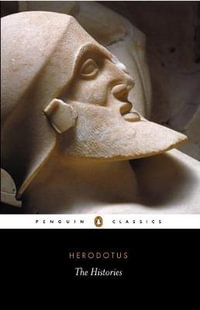Phantasmagoria explores ideas of spirit and soul since the Enlightenment; it traces metaphors that have traditionally conveyed the presence of immaterial forces, and reveals how such pagan and Christian imagery about ethereal beings is embedded in a logic of the imagination, clothing spirits in the languages of air, clouds, light and shadow, glass, and ether itself. Moving from Wax to Film, the book discusses key questions of
imagination and cognition, and probes the perceived distinctions between fantasy and deception; it uncovers a host of spirit forms -- angels, ghosts, fairies, revenants, and zombies -- that are still actively present in
contemporary culture. It reveals how their transformations over time illuminate changing idea about the self. Phantasmagoria also tells the accompanying story about the means used to communicate such ideas, and relates how the new technologies of the Victorian era were applied to figuring the invisible and the impalpable, and how magic lanterns (the phantasmagoria shows themselves), radio, photography and then moving pictures spread ideas about spirit forces. As
the story unfolds, the book features many eminent scientists and philosophers who applied their considerable energies to the question of other worlds and other states of mind: they staged trance séances in which
mediums produced spirit phenomena, including ectoplasm. Phantasmagoria shows how this often surprising story connects with some of the important scientific discoveries of a fertile age, in psychology and physics, and continues to influence contemporary experience.
Industry Reviews
`Rigorous research, dazzling cross-disciplinary leaps ... her passion seeps right through to the last page.'
Observer Review.
`The sprawl of Warner's thesis is slightly overwhelming but her passion seeps right through to the last page.'
Observer.
`Review from previous edition ...often manages splendidly vivid pictorial evocations ... a bold, imaginative and provocative study, with a range few other writers would dare.'
Carolyne Larrington, Times Literary Supplement
`The general effect is rather like that of reading through a first-class encyclopedia.'
Nigel Barley, Times Higher Education Supplement
`Frighteningly literate and well-informed'
Roz Kaveney, Time Out
`Marina Warner is particularly well-equipped to conduct this investigation'
Steven Connor, The Independent
`She is exquisitely alive not just to ideas and arguments, but also to the jag and whiff and tang of things'
Steven Connor, The Independent
`Phantasmagoria is a cabinet of familiar wonders: a jetting, generous, humane spree of thought, richly quickened by the life it finds within us and adroad, in our media and machineries of mind.'
Steven Connor, The Independent
`As always Warner's scholarship, eclecticism and inventiveness dazzle.'
Bel Mooney, The Times
`It is a book of wonders.'
Hilary Mantel,The Guardian
`Phantasmagoria is a fascinating history of spirited bodies and haunted machines, but a reminder too of why the metaphors still get under our skin'
Brian Dillon, Daily Telegraph
`This book's enquiries are wide-ranging, pertinent and up-to- date. All Marina Warner's material is freshly and enticingly presented.'
The Guardian, Hilary Mantel
`This book is a powerful statement.'
Hilary Mantel,The Guardian
`Marina Warner is particularly well-equipped to conduct this investigation.'
Stephen Connor, The Independent
`A densely layered book'
Mike Dash, Sunday Telegraph
`She is exquisitely alive not just to ideas and arguments, but also to the jag and whiff and tang of things.'
Stephen Connor, The Independent
`Phantasmagoria is a cabinet of familiar wonders: a jetting, generous, humane spree of thought, richly quickened by the life it finds within us and abroad, in our media and machineries of mind.'
Stephen Connor, The Independent
























